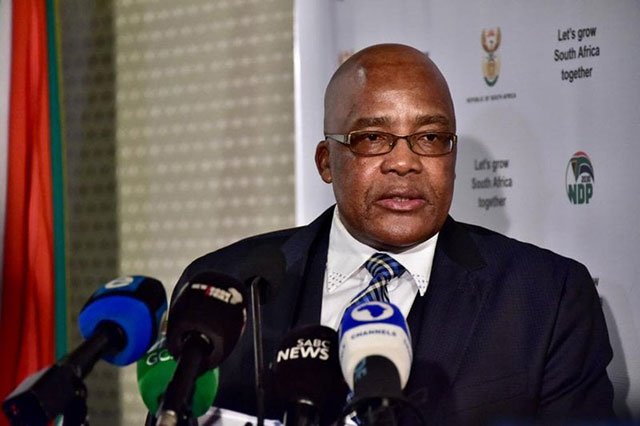Cape Town — Minister of Home Affairs, Aaron Motsoaledi, has revealed that there are over 566 000 identity documents (ID) that have not been collected at offices around the country.
Motsoaledi said there were a number of reasons why the IDs have not been collected, among them being that people do not want to wait in long queues, lack of transport, or they have not updated their contact details, IOL reported.
Motsoaledi said they have put measures in place to ensure that the number of IDs uncollected are reduced. He also added that of the 566 000, over 63 000 of those people have died.
“Total number of uncollected ID documents is 566, 429 Out of 566, 429 cases there are 63,452 deceased cases, leaving a balance of 502, 977 uncollected IDs,” he said.
He added that the deparrtment is currently working with other departments, local municipalities and state institutions in an effort to help people to collect their IDs.
ALSO READ | Motsoaledi takes Zimbabwean permits battle to Supreme Court of Appeal
There are also Community Outreach Programmes in partnerships with the IEC, Department of Basic Education, Metros, Districts and Local Municipalities. Uncollected ID volumes are shared with stakeholders to market and encourage clients to collect their documents through the various platforms provided,” he said.
Last month, Motsoaledi revealed that more than 700 000 IDs have been blocked, some due to identity fraud. Blocked Ids are a problem for many people as parents who have their IDs blocked, cannot register their newborn children.
“Motsoaledi said that the IDs were blocked as a precaution by officials when encountering suspicious IDs on the system to prevent possible fraud.”
Despite still 700 000 iDs blocked, Motsoaledi said that over 1.8 million IDs have been unlocked, but he was still encouraged not to unblock any further.
“We also wanted to unblock them, but the banks warned us that they have made a calculation that if we just jump and unblocked these IDs before the problems are resolved, they are likely to lose R17bn among themselves and it is not safe for the country.”
Follow African Insider on Facebook, Twitter and Instagram
Picture: X/@Am_Blujay
For more African news, visit Africaninsider.com
Compiled by Matthew Petersen


